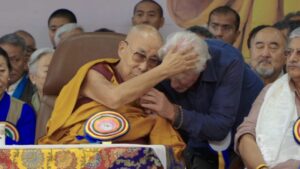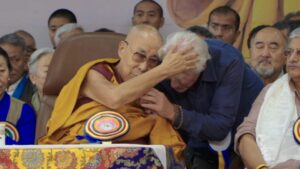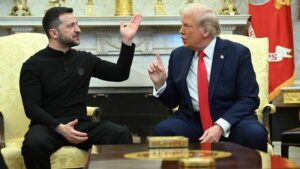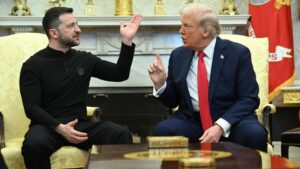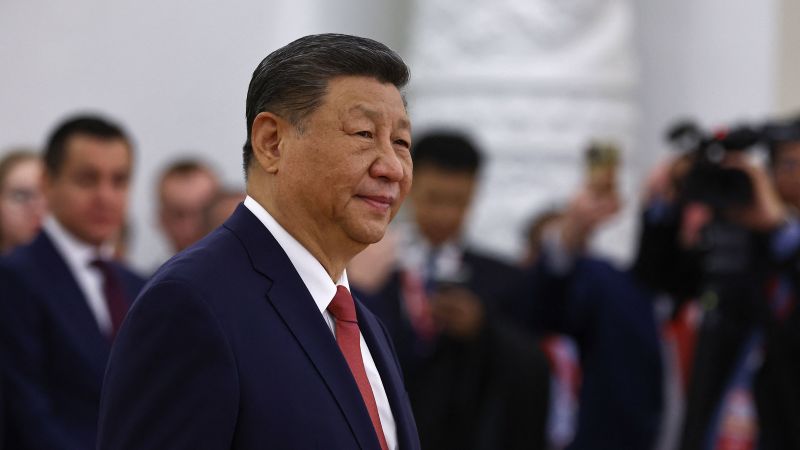
A summit of leaders from the BRICS group of major emerging economies kicks off in Brazil on Sunday, but notably absent is the top leader of its most powerful member. For the first time in over a decade, Chinese leader Xi Jinping will not attend the annual gathering. Xi’s absence from the two-day summit in Rio de Janeiro comes at a pivotal moment for BRICS, which includes Brazil, Russia, India, China, and South Africa, and has expanded to incorporate Egypt, the United Arab Emirates, Ethiopia, Indonesia, and Iran since 2024.
The absence of Xi, who has made BRICS a cornerstone of his strategy to reshape global power dynamics, is particularly significant. His decision not to attend, sending his No. 2 official Li Qiang instead, is seen by some as a missed opportunity to present China as a stable alternative to the US. This image is something Beijing has long sought to project, especially as the US under Donald Trump has embraced an “America First” policy.
Geopolitical Implications and Strategic Calculations
The timing of Xi’s absence is crucial. Some BRICS members are facing a July 9 deadline to negotiate tariffs imposed by the US, adding pressure to the group to demonstrate unity. Xi’s absence could suggest a shift in priorities as he focuses on domestic economic challenges. According to Chong Ja Ian, an associate professor at the National University of Singapore, “BRICS is part and parcel of Beijing’s effort to ensure it isn’t hemmed in by US allies.” However, with Trump in office, the pressure may have lessened, and BRICS may not be Xi’s top priority as he navigates China’s economic landscape.
Observers note that Beijing might have tempered expectations for this year’s summit, focusing instead on domestic issues and bilateral relations. The Chinese leader’s recent visits to Brazil for the G20 summit and a state visit, where he signed cooperation agreements with Brazilian President Luiz Inácio Lula da Silva, may have influenced his decision to skip the BRICS summit.
Attendance and Absences: A Changing Dynamic
Xi is not the only leader missing from the summit. Russia’s Vladimir Putin will attend via video link, avoiding travel due to potential arrest under International Criminal Court charges. This leaves Indian Prime Minister Narendra Modi and South African President Cyril Ramaphosa as prominent figures at the summit. New members like Indonesia’s Prabowo Subianto are expected to attend, highlighting the group’s evolving composition.
The absence of Xi and Putin shifts the spotlight to other leaders and raises questions about the group’s cohesion. The inclusion of new members and potential candidates like Saudi Arabia further complicates the dynamics, as the group grapples with diverse political and economic systems.
Economic Ambitions: De-dollarization and Beyond
BRICS has long positioned itself as a counterbalance to the G7, advocating for a “multipolar world” where power is more evenly distributed. The group has gained significance as Beijing and Moscow seek to bolster their international influence amid tensions with the West. However, the diverse nature of BRICS, with its mix of political and economic systems, poses challenges to its effectiveness.
One area of potential agreement is the move towards de-dollarization, appealing to members like Russia and Iran, who face US sanctions. Brazil’s President Lula has prioritized increasing payment options to reduce vulnerabilities, although a unified BRICS currency remains unlikely. The US has warned against such moves, threatening tariffs on BRICS countries that support a currency alternative to the dollar.
“Whether it be the Sino-Russian partnership or Beijing’s desire to project its purported leadership of the Global South, there is much in BRICS+ that resonates with Xi’s foreign policy worldview,” said Brian Wong, an assistant professor at the University of Hong Kong.
As the summit unfolds in Rio, the focus will be on how member countries navigate these complex issues, especially in the absence of China’s top leader. The decisions made could have lasting implications for the group’s future and its role in the global economic landscape.


